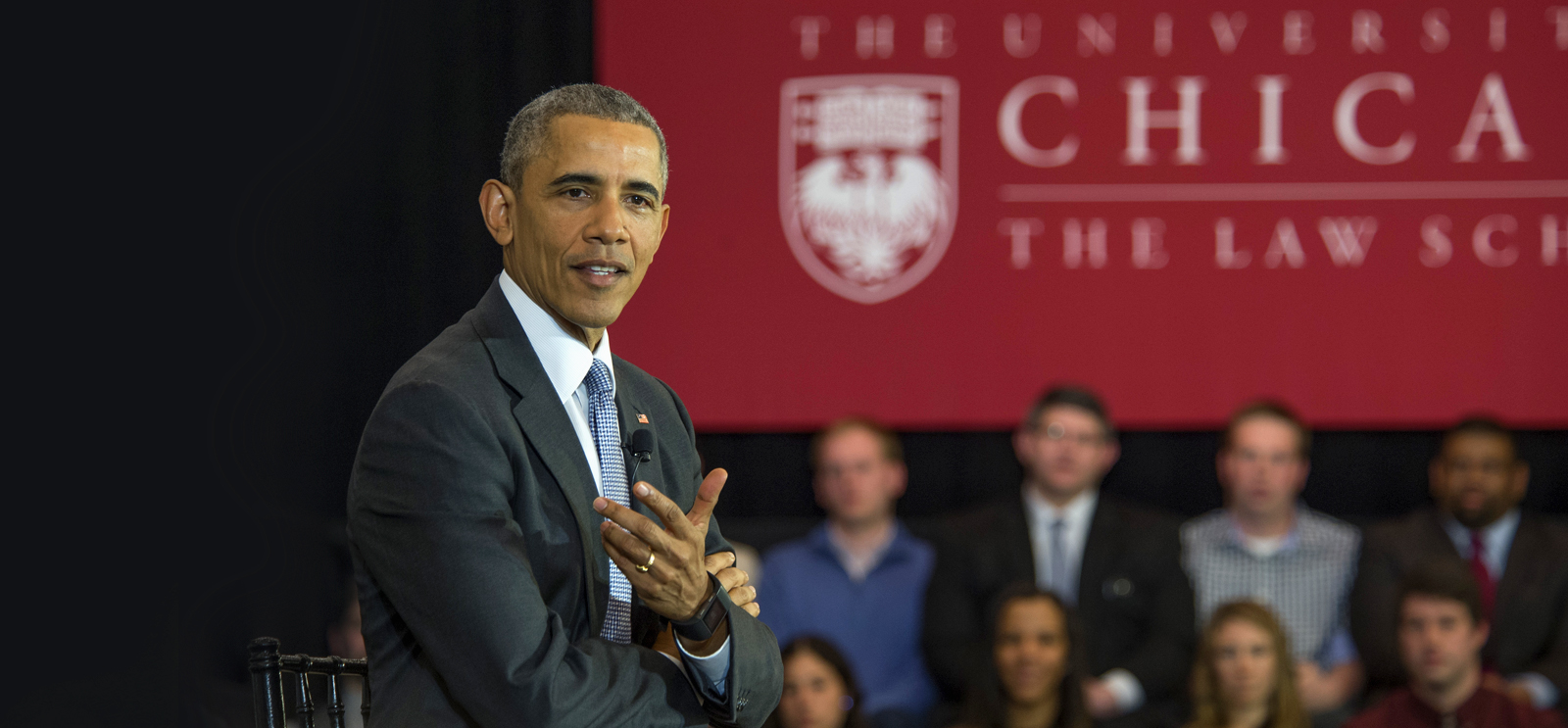
“I want to make sure I have someone who is wise and who cares about people,” Obama told a packed audience at the Law School Thursday, “and who is not arbitrary and [who] can provide confidence to the justice system.” (Photography by Robert Kozloff)
During a town hall-style event at the Law School on Thursday, President Barack Obama told moderator David Strauss, the Gerald Ratner Distinguished Service Professor of Law, that Merrick Garland, is “as good of a judge as we have.”
Obama, who taught constitutional law at UChicago for more than 10 years, addressed the politics of the current Supreme Court stalemate while touting his nominee’s qualifications—chief among which, Obama argued, is judicial restraint. Obama had searched for a justice with “intellectual integrity” who would focus on the law as written in the many cases with a clear constitutional answer—a judge who, even if that answer “is uncomfortable to them, if they do not like the outcome, they fall on board.”
However, a few cases don’t have an obvious constitutional precedent. Justices must use their best judgment in those situations, said Obama, which is why a judge’s values matter deeply to him. Obama asked potential justices about their family and background and was impressed by Garland’s life story, citing an instance in which a teenage Garland—whose parents are UChicago alumni—fought for a war protester’s freedom of speech. He was looking for someone who would “bring humanity to the job” and who would ensure all Americans had equal protection under the law.
When a student asked how Garland would add diversity to the court, Obama joked that Garland was from Skokie before explaining that if every qualified candidate from a broad set of potential nominees “gets a fair look,” the process naturally results in a “a good cross section” on the bench. He cited the increased number of minority judges on federal circuit courts during his administration and pointed to his other Supreme Court picks, Elena Kagan (a former Law School professor) and Sonia Sotomayor, as evidence that his process results in diversity. “But at no point did I say, ‘You know what, I need a black lesbian from Skokie,’” Obama said to more laughs. Garland is “a white guy, but he’s an outstanding jurist.”
When Strauss noted some liberals’ disappointment that he didn’t choose someone more left leaning, Obama responded that it was important to select a justice with a reputation as a moderate. The political polarization in Washington makes this a "good moment to have someone who is respected by both sides,” said Obama. The more the judiciary gets pulled into the fray of partisanship and electoral politics, he said, the less faith the American people will have in the courts to fairly adjudicate cases. And “our democracy can’t afford that.”
The president’s appearance came three weeks after Obama nominated Garland, the chief judge of the US Court of Appeals for the District of Columbia Circuit, to fill the seat left by late justice and former Law School professor Antonin Scalia. Most Senate Republicans have vowed not to consider any Obama nominee, arguing that next president should appoint the new justice.
